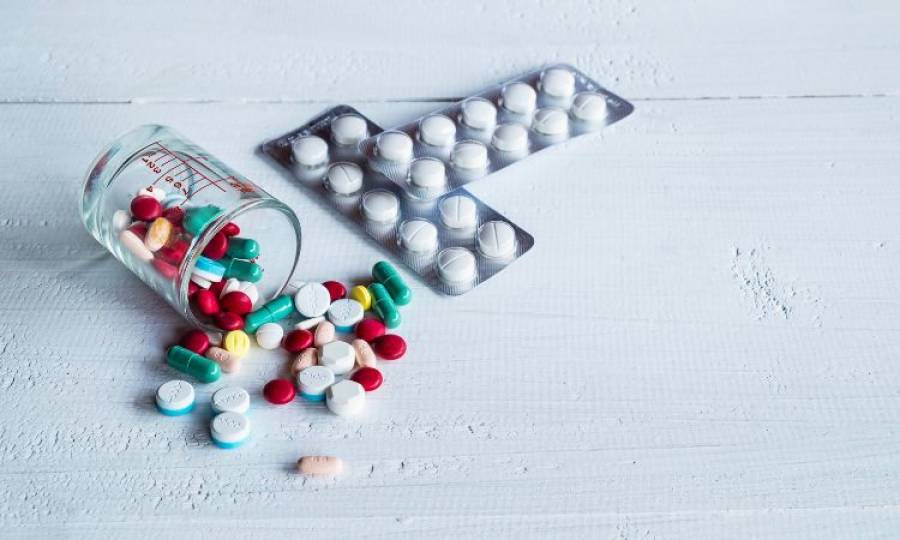WHO hands over medicines to Azra Pechuho

KARACHI: Dr Palitha Mahipala, Representative of the World Health Organization to Pakistan, met with Azra Pechuho, the Minister of Health and Population Welfare, to discuss the ongoing flood assistance in Sindh and how WHO might assist the Sindh Health Department.
Dr Mahipala stated that a calamity of this magnitude has never occurred in Pakistan and that the WHO will assist in any feasible way.
WHO distributed 300,000 aqua tabs, 300,000 facemasks, and 600 500ml bottles of hand sanitiser.
In terms of Antibiotics and Anti-Microbes, they provided 22,804 Amoxicillin capsules, 30 bottles of Chlorhexidine Gluconate tablets, 5000 Metronidazole tablets, 91,600 Sulfamethoxazole plus Trimethoprim tablets, 1800 bottles of Amoxicillin Syrup, 6000 bottles of Ciprofloxacin Syrup, and 1680 bottles of Metronidazole Syrup.
There are 54,810 Acetylsalicylic Acid tablets, 3000 Ibuprofen tablets, 600 bottles of Ibuprofen, and 240 injections of Diclofenac Sodium for antipyretics.
In addition, there are 6000 pills of anti-malaria Chloroquine Phosphate, 30,000 tablets of anti-parasitic Mebendazole, 60,000 tablets of anti-histamine Chlorpheniramine, and 900 bottles of Chlorpheniramine syrup.
Significant numbers of Skin Diseases are also present; hence 300 tubes of Clotrimazole Cream and 2400 tubes of Polymyxin B Sulphate Bacitracin Zinc Skin Ointment are required.
In addition, 1360 bags of 500 ml of Dextrose -5%, 140 packs of 100 ml of Dextrose 5%, and 12,000 sachets of ORS were administered as IV Fluids and ORS.
Other medications include 1260 Omeprazole capsules, 870 Salbutamol tablets, and 300 Salbutamol ampules.
Azra Pechuho and Dr Palitha Mahipala, WHO's Representative to Pakistan, discussed the needs of the people for flood relief.
It was determined that mobile health units are the most important, as they can reach people who have been shut off by flooding.
Dr Mahipala stated that he might use ten double-cabin, all-terrain vehicles and ten standard vans that can access generally motorable roads as mobile health units.
Due to the contaminated environment, chronic diseases such as tuberculosis, hepatitis B and C, HIV, and typhoid will increase, according to Azra.
Azra Pechuho suggested that a regular radio transmission be made informing all pregnant women and those accompanying them to seek out temporary and permanent health facilities if they can or to inform health officials of their locations so they can be cared for.
The registration of pregnant women will assist flood relief personnel in prioritising specialised treatments and supplements for the women who require them most.
Azra Pechuho requested Dr Mahipala if their flood relief assistance to Sindh should include menstrual hygiene supplies and pregnancy kits with towels, diapers, nutritional supplements, etc.
Dr Mahipala concurred and stated that WHO staff would assemble the kits and assist the Sindh province. Azra Pechuho noted that physicians and paramedics who previously dealt with covid would be requested to assist with flood relief.
The Internally Displaced Population (IDP) is being housed in labour colonies around the province as those from flood-affected areas migrate to drier places.
Azra Pechuho recommended that tertiary hospitals in Karachi have a separate counter for IDPs, as many IDPs are travelling to the city.
It was also determined that there would be a daily online meeting with all the ministers responsible for flood relief in Sindh to assess the needs, the changing illness patterns, and the day-to-day priorities for flood relief.
Over 62,000 patients are being treated daily for malaria, dengue, diarrhoea, gastroenteritis, and other conditions in the province of Sindh, where there are currently 43,85722 internally displaced people.
Azra Pechuho also recommended constructing makeshift hospitals with delivery rooms and operating theatres in the tent towns constructed to house IDPs.
Trending
Popular
Sindh pledges vigorous action to prevent poliovirus transmission
-
PMA stresses health equity on World ...
04:08 PM, 9 Apr, 2024 -
Dow University’s new rabies vaccine ...
12:18 PM, 28 Mar, 2024 -
IRD role lauded in advancing ...
02:53 PM, 12 Mar, 2024 -
Over one billion people worldwide ...
09:48 AM, 5 Mar, 2024




